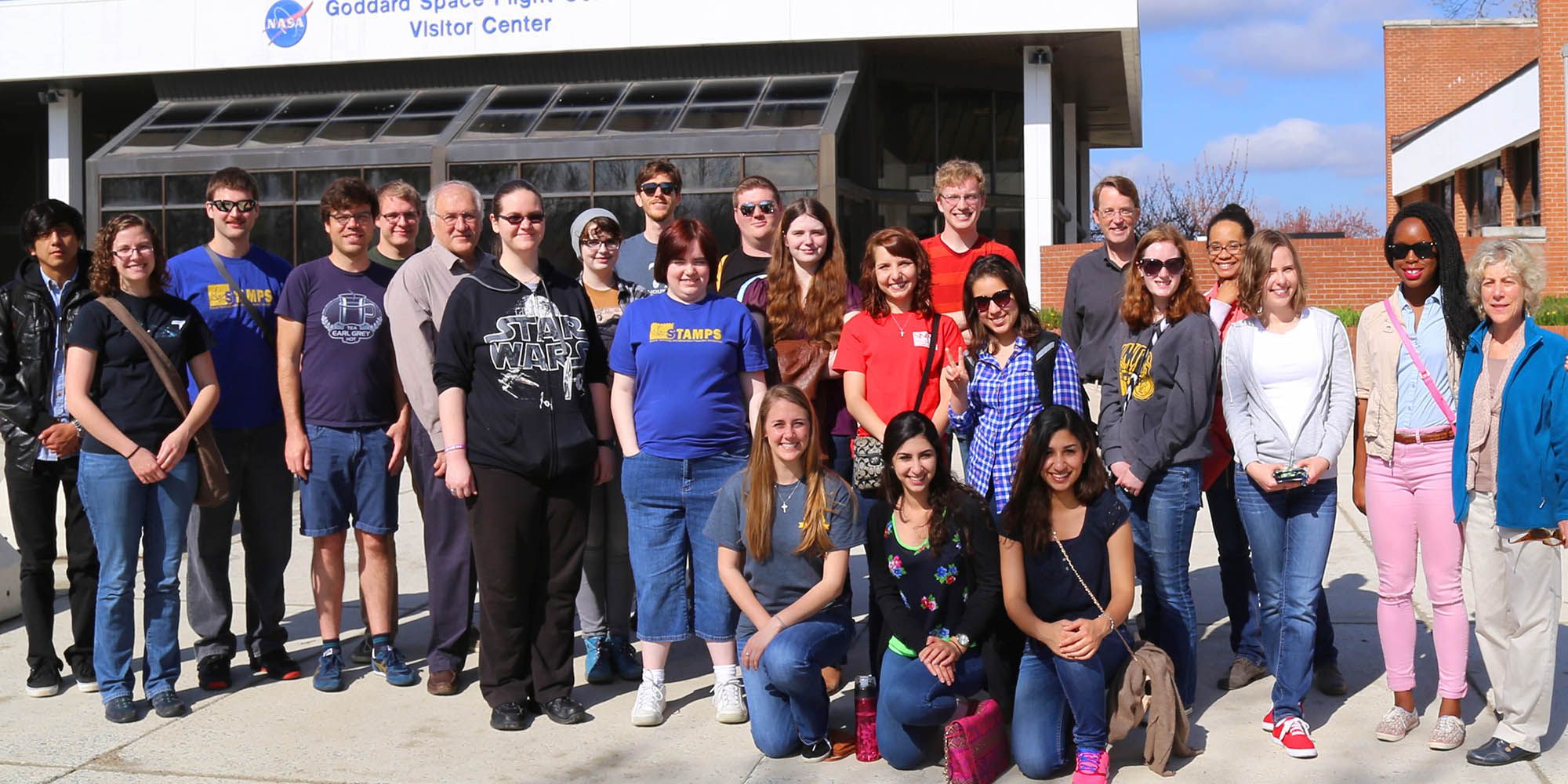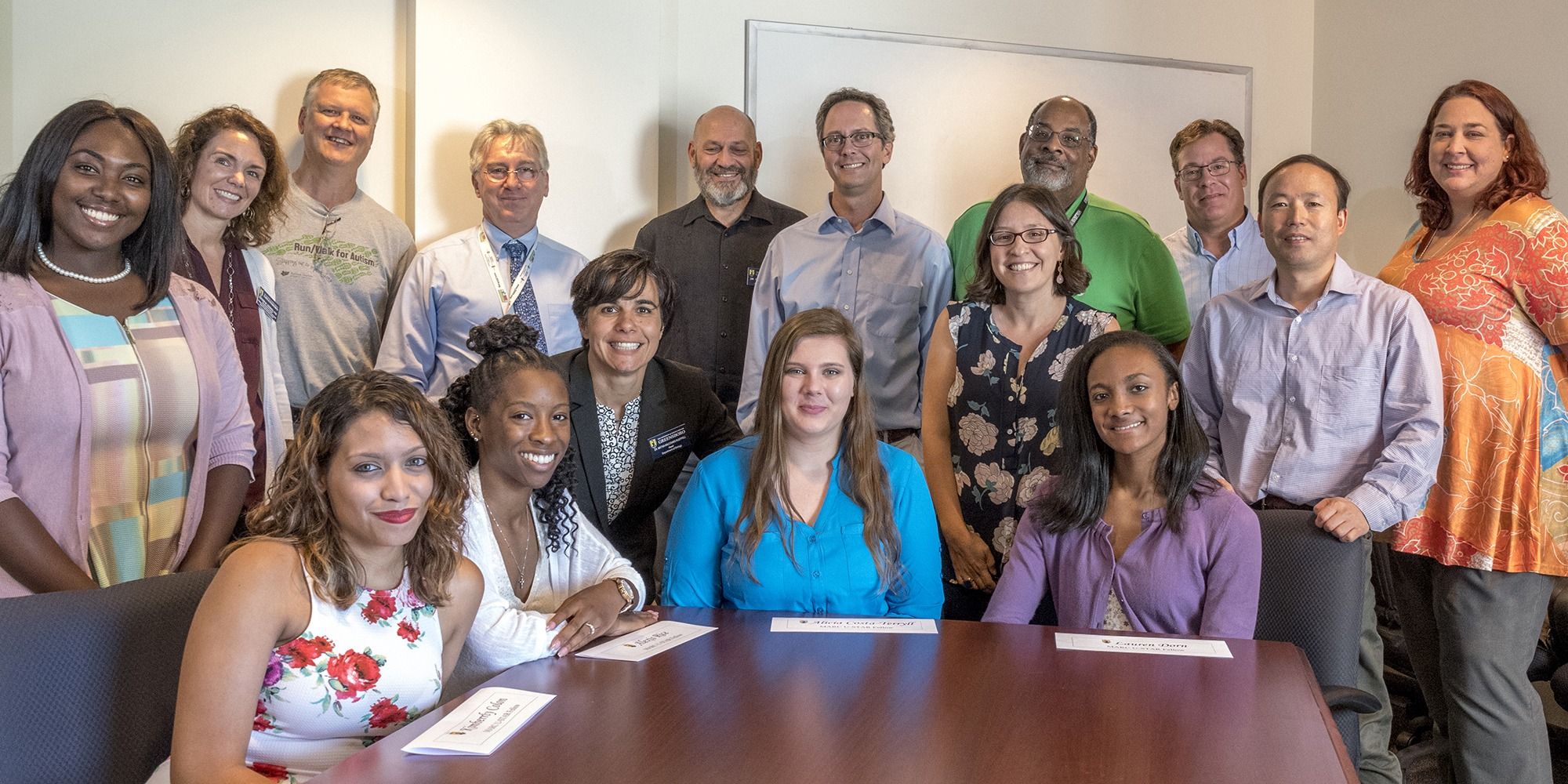In the last 15 years, African American females at UNCG graduated at a rate higher than any other group, followed by African American males.
“I don’t know if it’s the best kept secret of our institution, but for the last 10 years, UNCG has essentially had no educational achievement gap as it relates to ethnicity,” says Dr. Joseph Green, executive director at UNCG’s Student Success Center.
A recent flow of funding proves that the university’s student-focused approach, leadership in undergraduate research, and track record for creating access for first-generation and underrepresented students is no secret.
In January, UNCG received $1 million from the National Science Foundation to enroll academically talented and financially challenged minority, female, and first-generation students seeking degrees in STEM, as part of the Science, Technology, and Math Preparation Scholarship (STAMPS) program.
In March, UNCG was selected for the Gates Foundation’s Frontier Set, joining 31 institutions across the country working to close achievement gaps in higher education. Participating institutions, already identified as pioneers in advancing student outcomes, partner and share best practices as they work to improve student success and transitions to the labor market.
In May, the university received a $1.4 million National Institutes of Health Maximizing Access to Research Careers Undergraduate Student Training in Academic Research (MARC U-STAR) grant to support underrepresented minority and disadvantaged students pursuing biomedical and behavioral health degrees.
And in September, UNCG was selected to host a $1.2 million McNair Postbaccalaureate Achievement Program to prepare first-generation, low-income, and underrepresented undergraduate students for doctoral studies.
“I think these awards demonstrate confidence in the university, in our commitment to provide quality educational experiences for all students,” says Dr. Lee Phillips, director of the Undergraduate Research, Scholarship, and Creativity Office.
This year, UNCG rolled out its new strategic plan, laying the groundwork for “giant steps” in transforming education by more strongly addressing the needs of a diverse student body.
UNCG is recognized as a designated minority-serving institution. Close to 66 percent of undergraduate students are female, 35 percent are considered an underrepresented minority, and 45 percent are Pell Grant-eligible. And the graduation rate for African American students at UNCG is 18.6 percent higher than the rate for African American students at its top 15 peer institutions.
“We are committed to all of our students being successful,” says Dr. Terri Shelton, vice chancellor for research and engagement. “But, in particular, we’ve begun to drill deep, using data and evidence-based practices, to look at how we close some of the gaps we see in retention and graduation rates, and how we respond to a lack of diversity in certain workforce opportunities.”
The university is using a combination of data and hands-on care to meet the different needs of students.
“We encourage the use of ‘high-impact practices’ to promote learning,” says Provost and Executive Vice Chancellor Dana Dunn. “These are active-learning strategies that engage students and motivate them to succeed.”
Programs like STAMPS emphasize faculty and peer mentorship. “A lot of evidence suggests if students feel they are part of a community, they stay in school,” explains project director Dr. Lynn Sametz. The four-year graduation rate for an earlier version of the STAMPS program was 57 percent higher than UNCG’s average four-year graduation rate.
Undergraduate research is another high-impact practice that weaves through many UNCG initiatives, lying at the heart of programs like McNair and MARC U-STAR.
“If we want diversity in STEM, disadvantaged students need access to research experiences and mentoring and information on navigating the system,” says Phillips.
Students aren’t the only ones receiving an education. Programs like MARC U-STAR also train faculty on how institutional racism manifests in STEM.
“We want to transform the culture on campus,” explains Dr. Dan Herr, a co-principal investigator on MARC U-STAR.
As students and faculty succeed in this endeavor, our economy and society will benefit, says Dunn. “We are in this together. Education is the promise of the future, and this work is key to achieving that promise.”



